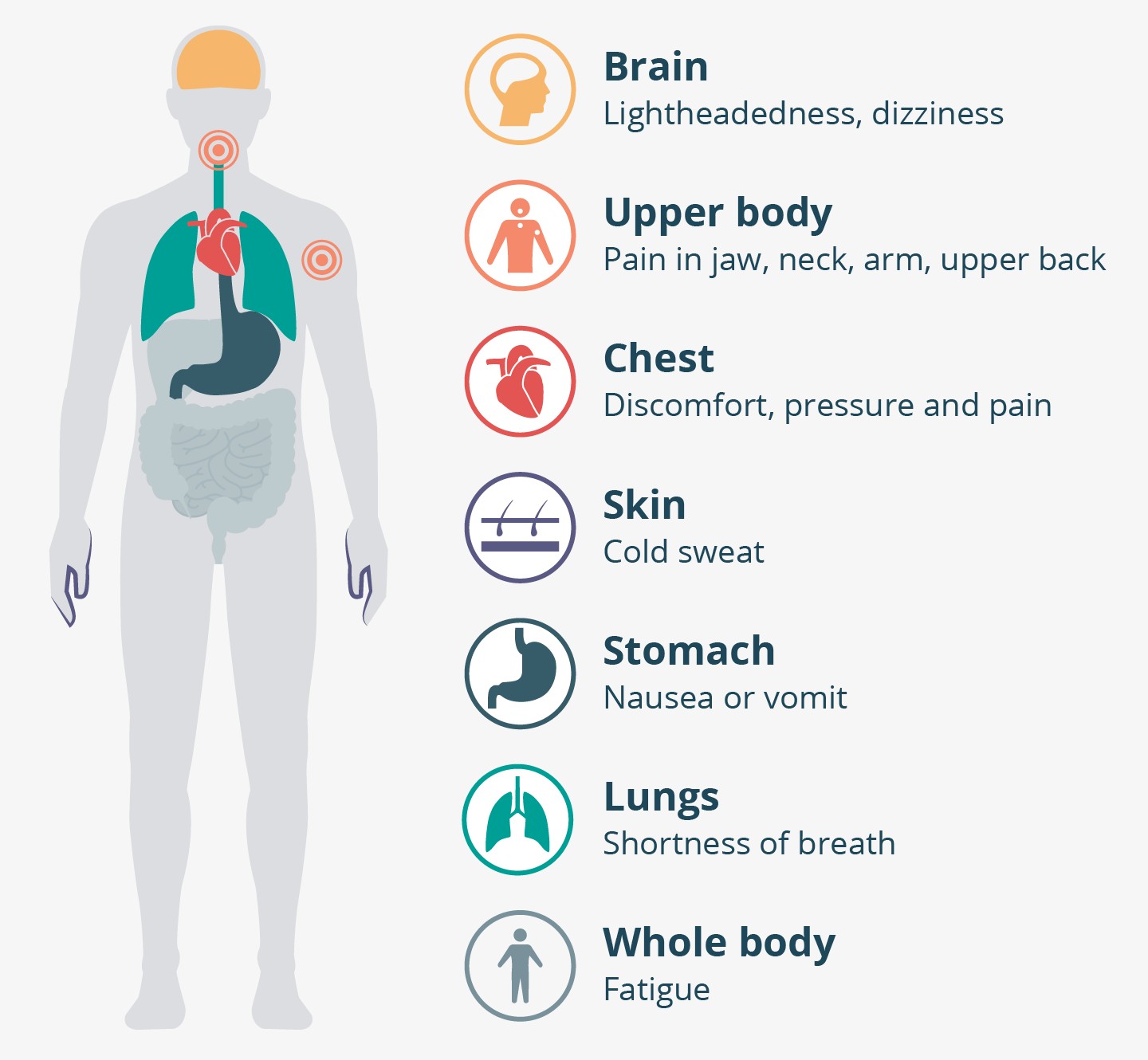Chest pain can be a really alarming sensation, especially when it strikes in the middle of your chest. It’s natural to feel worried and wonder, “Why Does The Middle Of My Chest Hurt?”. It’s important to understand that chest pain, in any location, including the center, can stem from various causes, some more serious than others. This article will explore the potential reasons behind middle chest pain, helping you understand when it’s crucial to seek immediate medical attention and when it might be related to less urgent issues.
Is Middle Chest Pain Serious? Recognizing Potential Heart Issues
One of the primary concerns when experiencing chest pain, particularly in the middle of your chest, is the possibility of a heart-related issue. Chest pain is a well-known symptom of a heart attack, and it’s vital to rule out this potentially life-threatening condition. The reason for this concern is that the heart is located in the center of the chest, slightly to the left. Pain originating from the heart may often be felt in the middle of the chest area.
It’s crucial to remember that any chest pain should be evaluated by a medical professional as soon as possible. While not all middle chest pain indicates a heart attack, it’s always better to err on the side of caution and seek medical advice to determine the underlying cause.
Heart Attack Symptoms: What to Watch For
Understanding the symptoms of a heart attack is critical, especially when you’re experiencing middle chest pain. Heart attack symptoms can vary, and it’s important to be aware of the range of possibilities. The classic symptom is often described as:
- Chest Discomfort: This isn’t always sharp pain. It can feel like pressure, tightness, squeezing, or fullness in the center of your chest. Some people describe it as feeling like an elephant is sitting on their chest, or a tight band is around it. This discomfort usually lasts for more than a few minutes, or it may come and go.
However, heart attack symptoms can extend beyond just chest pain and may include:
- Pain radiating to other areas: Discomfort can spread to your arms (especially the left arm), shoulder, neck, jaw, or back.
- Shortness of breath: You may feel like you can’t catch your breath, even while resting.
- Nausea or vomiting: Feeling sick to your stomach or throwing up.
- Cold sweat: Breaking out in a sweat even if you’re not hot.
- Lightheadedness or dizziness: Feeling faint or unsteady.
- Palpitations: A sensation of a racing or fluttering heartbeat.
It’s important to note that women may experience heart attack symptoms differently than men. They are more likely to experience symptoms like shortness of breath, nausea, back or jaw pain, and fatigue, in addition to or instead of classic chest pain.
 Illustration depicting the common heart attack symptoms and their corresponding areas on the body.
Illustration depicting the common heart attack symptoms and their corresponding areas on the body.
Alt text: Illustration showing areas of the body affected by heart attack symptoms including chest, left arm, jaw, back, shoulder and stomach.
When Middle Chest Pain Requires Immediate Action
If you experience middle chest pain accompanied by any of the following, it’s essential to call emergency services immediately:
- Severe chest pain: Pain that is intense and unbearable.
- Worsening chest pain: Pain that is getting progressively more intense.
- Chest pain lasting longer than 10 minutes: Pain that persists for an extended period.
- Chest pain described as crushing, heavy, or tight.
- Chest pain along with other symptoms such as breathlessness, nausea, dizziness, or cold sweat.
- Chest pain radiating to the jaw or left arm.
- Palpitations associated with chest pain.
Do not delay seeking help if you are experiencing these symptoms. Time is critical when it comes to heart attacks. Prompt medical attention can significantly improve outcomes.
Other Causes of Middle Chest Pain
While heart-related issues are a significant concern, middle chest pain can also arise from a variety of other causes that are not directly related to the heart. These can include:
- Musculoskeletal Issues: Strain or injury to the muscles, ligaments, or ribs in the chest wall can cause pain. This pain is often localized and may worsen with movement or pressure on the area.
- Acid Reflux or Heartburn: Stomach acid flowing back into the esophagus can cause a burning sensation in the chest that may be felt in the middle.
- Anxiety and Panic Attacks: Anxiety and panic can trigger chest tightness and pain, sometimes felt centrally.
- Lung Conditions: Certain lung conditions like pleurisy or pneumonia can cause chest pain, though this is often felt more to the side of the chest.
It’s important to remember that while these conditions are less immediately life-threatening than a heart attack, they can still be painful and require medical evaluation for proper diagnosis and management.
What to Do While Waiting for Medical Help
If you’ve called for emergency medical assistance due to severe middle chest pain, here are steps you can take while waiting:
- Stop all activity and rest: Sit or lie down in a comfortable position.
- Loosen tight clothing: This can help you breathe more easily.
- Do not eat or drink anything: This is important in case you need medical procedures.
- If prescribed angina medication: Take your medication as directed. If symptoms don’t improve after the first dose within 5 minutes, take a second dose if prescribed.
- Chew Aspirin (if appropriate): Unless you are allergic or have been told not to by your doctor, chewing 300mg of aspirin can be beneficial during a potential heart attack. Do not give aspirin to children under 12.
Conclusion: Listen to Your Body and Seek Advice
Experiencing pain in the middle of your chest can be concerning, and it’s wise to take it seriously. While not every instance of middle chest pain indicates a heart attack, it’s crucial to be aware of the potential seriousness and know when to seek immediate medical help. If you are unsure about the cause of your chest pain, or if you experience any of the warning signs mentioned, do not hesitate to contact your doctor or emergency services. Seeking prompt medical evaluation is always the best course of action to ensure your health and well-being.
